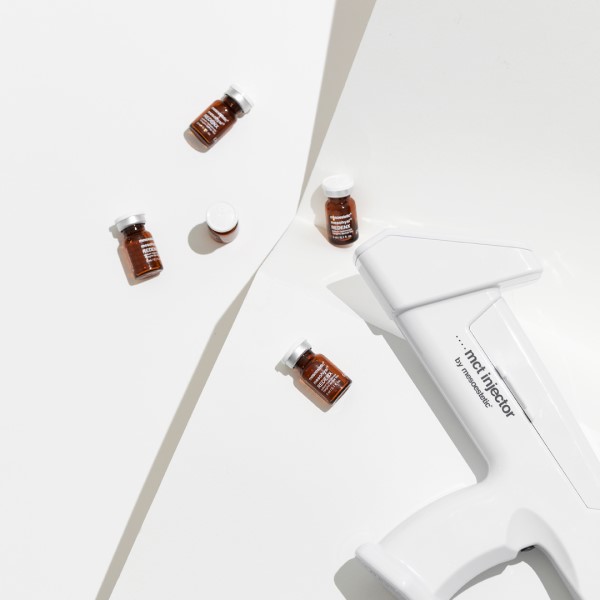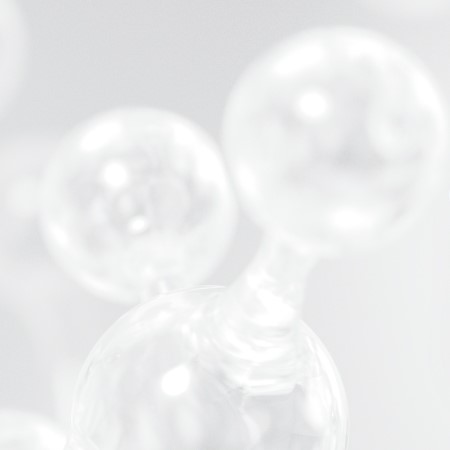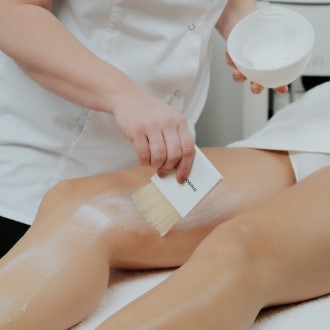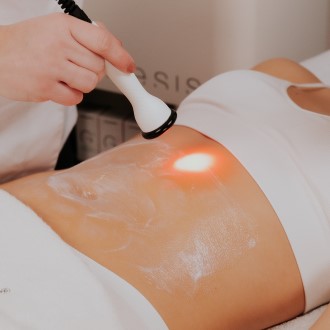Menopause is a phase of female reproductive life, and its impact goes beyond the mere cessation of menstruation1. It is a stage in which numerous physical changes occur, with weight fluctuations being one of the most worrying for many women.
Does menopause make you lose or gain weight?
Weight gain is one of the most well-known symptoms of menopause, as many women experience it and it is one of their major concerns, not only for aesthetic reasons but also for health reasons2. However, menopause does not, in itself, lead to weight gain: the reality is more complex and is dictated by a combination of genetic and hormonal factors and habits.
Although saying that menopause causes weight gain is overly simplistic, it does influence the parts of the body where fat accumulates. The production of oestrogen, a key hormone in women’s body composition, declines during this phase, causing fat to stop accumulating in the hips and thighs and shift to the abdominal area.
What are the causes of weight gain during menopause?
This weight gain is due to various factors. Oestrogen plays a key role, since its reduction, in addition to affecting the distribution of body fat, also causes loss of muscle mass. This causes an increased fat accumulation, even when eating the same, because muscle consumes more calories than other tissues and is therefore closely linked to basal metabolism. That is, the loss of muscle mass leads to a slowdown in our metabolism.
Additionally, during menopause, some women experience increased hunger. Hormonal imbalances cause the feeling of fullness to become unregulated and more calories to be ingested.
Furthermore, circadian rhythms can be altered due to insomnia or sleep disorders, anxiety or mood swings. All of these menopausal symptoms can affect the hormones that regulate appetite. Insulin resistance, which some women develop during menopause, is another contributing factor that makes it difficult for blood sugar to be regulated properly and encourages fat accumulation3.
The combination of all these factors explains why you gain weight during menopause. Fortunately, lifestyle choices can be made to maintain or even lose weight throughout this stage of a woman’s life.
Tips on lifestyle habits during menopause
If you are wondering how to lose weight during menopause, diet is one of the main keys4. It is recommended to follow a diet rich in protein, legumes, fruits, vegetables, probiotics, and healthy fats, while minimising the consumption of ultra-processed products, saturated fats, refined carbohydrates, alcohol, and sugar.
Portion control is just as important as eating a balanced diet. Due to the loss of muscle mass, the calorie consumption needed to obtain the same energy is lower, and therefore portions must be adjusted. High-fibre, low-calorie products help increase the feeling of fullness without increasing calorie intake.
Physical activity is also essential for weight loss during menopause5 . The most important thing is to get into the habit of moving and, to achieve this, it’s best to find an activity or sport that we enjoy. If you are not used to exercising, it is best to start with moderate exercise (brisk walking, cycling, swimming) and increase the intensity as you gain endurance. And while there’s no magic formula for determining the ideal exercise routine, strength training with weights, bands, or your own body weight is especially indicated, not only for burning fat and increasing muscle mass, but also for preventing osteoporosis.
Finally, good quality sleep can help control weight during menopause, as it promotes hormonal balance.
Professional treatments
At Dexeus Midlife we offer various professional aesthetic treatments that combat accumulated fat and help with weight loss during menopause .
Mesotherapy
This in-salon procedure corrects cosmetic imperfections through superficial microinjections to deliver active ingredients into the dermis and, by improving blood and lymphatic microcirculation, it helps eliminate localised fat anywhere in the body.
Mesotherapy is characterised by offering visible and long-lasting results.
Carboxytherapy
It is a minimally invasive medical-aesthetic technique that consists of infiltrating carbon dioxide into the tissues using a very fine needle. CO2 acts on fat deposits and the excess enters the bloodstream, dilating blood vessels and improving circulation in the treated area.
Carboxytherapy is a versatile, safe, and effective treatment that can be applied to various areas of the body to reduce fat accumulation.
Professional topical treatments
Ideal for those seeking a professional, injection-free, and non-surgical treatment that helps eliminate localised fat and cellulite.
These noninvasive topical treatments combine the application of products with high concentrations of active ingredients, using techniques such as remodelling massages with a lifting effect (Kobido type), radiofrequency, and microneedling to ensure maximum penetration and effectiveness.
Radiofrequency
This noninvasive procedure raises the temperature of the different layers of the skin using electromagnetic waves to stimulate the production of collagen and elastin, improve skin firmness, combat sagging skin, and reduce localised fat.
Radiofrequency is ideal for treating fat accumulation in its early stages, or as a supplement in more advanced stages.
With the right information, menopause doesn’t have to mean a loss of well-being or self-esteem. Understanding why weight gain is common at this stage, adopting healthy habits, and seeking specialised treatments are essential for maintaining good health and a good physical appearance.
References
2 https://www.imsociety.org/wp-content/uploads/2020/07/wmd-2012-white-pages-la-spanish.pdf
3 https://ve.scielo.org/scielo.php?script=sci_arttext&pid=S1690-31102012000200002
4 https://formacionasunivep.com/Vciise/files/libro%20salud%20vol%202.pdf#page=187
5 https://dialnet.unirioja.es/servlet/articulo?codigo=2265686








